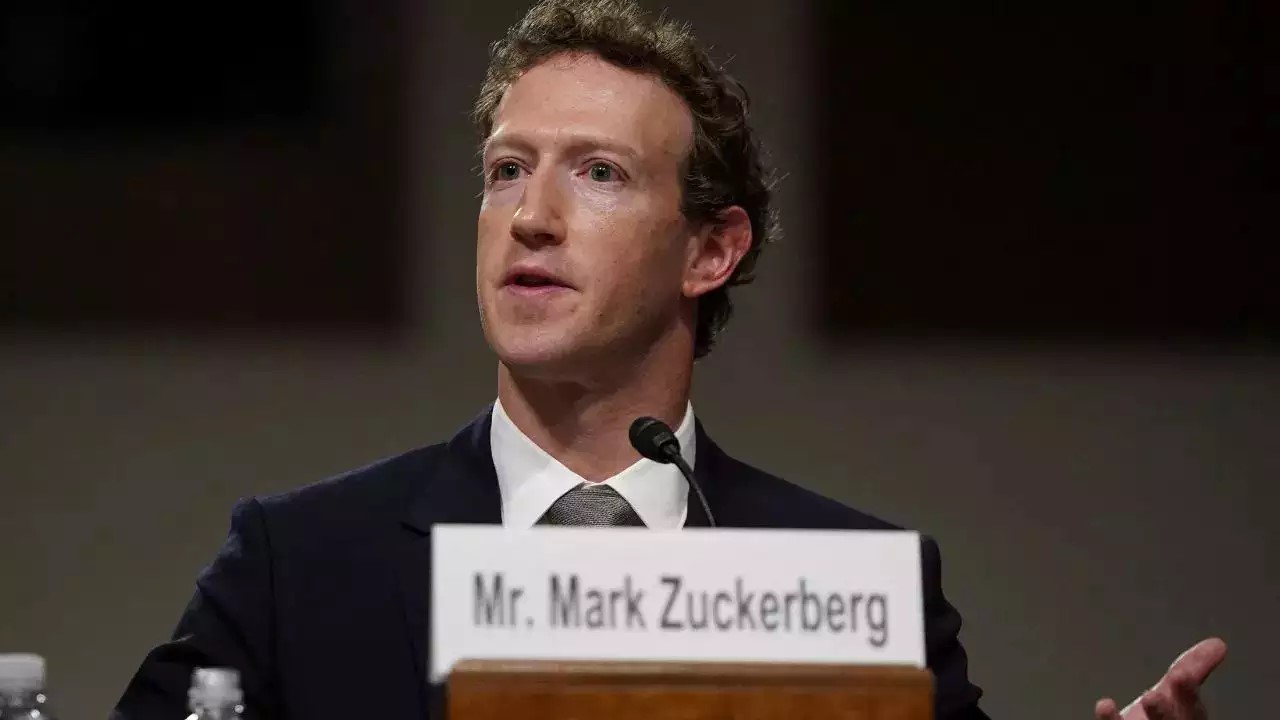Mark Zuckerberg, CEO of Meta, has taken a series of steps that appear to align his company more closely with Republican interests, providing the GOP with potential advantages as the 2024 presidential election draws near. This shift comes after years of Republican dissatisfaction with Meta’s content moderation policies and signals a possible realignment of the tech giant’s political stance.
In recent weeks, Zuckerberg has made statements that resonate with right-wing concerns about censorship, including implicit support for claims that social media platforms have been biased against conservatives. His unexpected praise for former President Donald Trump, whom he described as “badass,” further suggests a strategic pivot aimed at placating Republican grievances.
On Monday, Zuckerberg sent a letter to the House Judiciary Committee, accusing the Biden administration of pressuring Meta to censor content during the COVID-19 pandemic. In the letter, Zuckerberg detailed how senior officials from the Biden administration repeatedly urged Meta to suppress specific COVID-19-related content, including satire, and expressed frustration when the company did not comply.
Zuckerberg’s admission that he felt “wrong” about the pressure and his regret for not being more outspoken against it has quickly become a political weapon for Trump and other Republicans. Trump, in particular, seized on the letter to bolster his ongoing false narrative that the 2020 election was stolen.
Trump amplified the letter on his Truth Social platform, declaring it as evidence of a broader conspiracy to suppress conservative voices and steal the 2020 election. The Republican-led House Judiciary Committee also welcomed Zuckerberg’s revelations, posting the letter on social media and using it to attack President Biden and Vice President Kamala Harris, who is running for reelection as the Democratic nominee.
The committee’s response framed Zuckerberg’s admissions as a significant victory for free speech, reinforcing the GOP’s longstanding narrative of social media bias against conservatives. The letter comes amid a two-year investigation by House Republicans into the content moderation practices of major social media networks, further fueling their allegations of liberal bias.
Zuckerberg’s decision to address these issues in a letter to the House Judiciary Committee is particularly significant, given that the committee is chaired by Ohio Representative Jim Jordan, a leading figure in the Republican effort to challenge the legitimacy of the 2020 election. Jordan has been instrumental in promoting the false claim that the 2020 election was stolen, making Zuckerberg’s letter a powerful addition to the GOP’s rhetoric.
While it is common for social media companies to reassess their content moderation policies ahead of elections, Zuckerberg’s decision to publicly disclose these pressures aligns with Republican claims of censorship and government overreach. Despite a Supreme Court ruling that affirmed the federal government did not overreach by requesting platforms to address potential misinformation, Zuckerberg’s letter amplifies the GOP’s narrative of social media collusion with liberal officials.
In his letter, Zuckerberg also acknowledged that Meta had, at times, removed or limited the spread of harmful misinformation, particularly during the pandemic and in the context of the 2020 election. He clarified that these actions took place under both the Trump and Biden administrations, which highlights the pressure that social media companies have faced from different political quarters.
Over the past few years, Meta, along with platforms owned by other influential figures such as Elon Musk, has scaled back many of the measures that were originally implemented to combat misinformation. Notably, this includes Meta’s decision to reinstate Trump’s accounts on its platforms, following the former president’s suspension in the wake of the January 6th Capitol insurrection.
Zuckerberg’s shifting stance on issues related to elections and misinformation is also reflected in his decision to halt funding for election-related efforts. During the 2020 election, Zuckerberg had donated over $400 million to support election infrastructure, an initiative that was heavily criticized by Republicans, who dubbed it “Zuckerbucks” and accused him of influencing the election’s outcome in key battleground states. In light of this criticism, Zuckerberg has decided against making similar contributions in the upcoming election cycle.
In his communication with Representative Jordan, Zuckerberg emphasized his commitment to neutrality, stating, “My goal is to be neutral and not play a role one way or another—or to even appear to be playing a role.” This comment underscores his intention to distance Meta from the political fray, especially in a highly polarized election environment.
Moreover, Zuckerberg’s recent interview with Bloomberg, where he expressed admiration for Trump’s reaction to an assassination attempt, adds another layer to his evolving public persona. His description of Trump’s response as “one of the most badass things I’ve ever seen in my life” has further fueled speculation about his political leanings.
As Meta continues to refine its content policies and reduce the prominence of political content on its platforms, the broader implications of these changes for the 2024 election remain uncertain. Zuckerberg’s statements suggest that Meta’s influence on the upcoming election may be less pronounced than in previous cycles, potentially altering the role of social media in shaping public opinion and electoral outcomes.
In summary, Zuckerberg’s recent actions and statements indicate a strategic recalibration that could benefit Republicans as the 2024 election approaches. His efforts to address GOP concerns about censorship, coupled with his decision to scale back Meta’s involvement in election-related activities, suggest a more cautious and neutral approach from the social media giant. Whether this will result in a significant shift in the political dynamics surrounding Meta remains to be seen, but it is clear that Zuckerberg’s moves have already sparked considerable discussion and speculation across the political spectrum.






